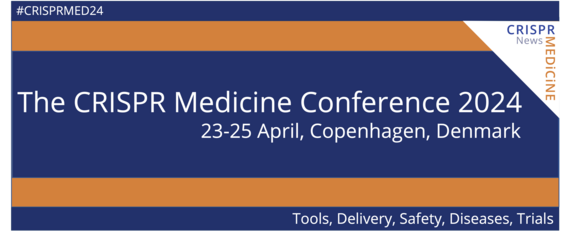CRISPR Diagnostics Update – Pneumonia
When CRISPR-Cas9 technology emerged less than a decade ago, the scientific community quickly saw the potential to cure genetic diseases by permanently correcting the underlying genetic defects.
With technical advances in CRISPR, the discovery of new Cas endonucleases with distinct properties, and more recently the COVID-19 pandemic, CRISPR-based diagnostics have gained a lot of traction. Rapid developments in this area are highlighted by the first ever FDA-approved CRISPR product, a diagnostic test for COVID-19 that was approved last year.
This week’s clinical update looks at a randomised multicenter clinical trial to evaluate the efficacy of combining CRISPR-Cas12a with PCR to detect pneumonia in alveolar lavage fluid, as a means to direct early and targeted anti-infective therapy in patients with severe pneumonia.
Combined CRISPR-Cas12a and PCR to Direct Antibiotic Therapy in Patients With Severe Pneumonia
The study, which began in August 2019 and is actively enrolling 146 adult participants, is sponsored by the Department of Critical Care Medicine, Affiliated Drum Tower Hospital of Nanjing University Medical College in China.
Two groups of patients with confirmed pneumonia will be enrolled from 5 adult intensive care units throughout 3 Chinese hospitals.
The control group will be monitored according to traditional microbiological detection methods including culture methods, mass spectrometric detection of bacterial proteins, and sequencing. The experimental group will be monitored early during the course of infection via a combined Cas12a/PCR strategy to identify the pathogen in samples of alveolar lavage fluid. Antibiotic treatment in both groups will be adjusted according to the detection outcomes.
The study ultimately asks whether the combination of PCR and CRISPR-Cas12a to detect pneumonia in alveolar lavage fluid alters the course of early antibiotic treatment in patients with Ventilator Associated Pneumonia (VAP), and whether it changes patients’ outcome compared with traditional microbial detection methods.
The primary outcomes are related to the mortality, hospitalisation stay, need for ventilation, onset of complications and incidence of new infection with multi-drug resistant bacteria (as a side effect of antibiotic treatment).
The Need For Faster Detection Methods
The incidence of bacterial infection in the lower respiratory tract is high among patients in intensive care units. These infections often lead to severe pneumonia, causing septic shock, which is a significant cause of death among intensive care patients.
In the intensive care setting, antibiotic treatment is often initiated empirically when clinical signs of pneumonia are present, before the offending pathogen has been identified. Although empirical therapy is an important component of modern critical care medicine, its use creates several challanges in the hospital setting. Studies have shown that inadequate empirical therapy i.e. therapy that does not cover the offending pathogen, and excessive antibacterial usage contributes to bacterial resistance and increased patient mortality.
Identifying pathogens as early as possible and shortening the duration of empirical treatment should improve the outcome for patients with severe pneumonia and reduce the burden of bacterial resistance.
Combining CRISPR-Cas12a and PCR For Faster Detection
The combined CRISPR-Cas12 and PCR approach used in the current study is based on research carried out by the College of Life Sciences of Nanjing University. The approaches combines amplification by PCR to increase detection sensitivity and detection of target sequences by Cas12a through specific binding of a target-specific crRNA to the bacterial target DNA.
The combined procedure is completed within 2-3 hours, making it much faster than conventional methods. The feasibility and accuracy of the approach was verified using pneumonia-causing pathogens that are commonly encountered in intensive care setttings, including Acinetobacter baumannii, Methicillin-resistent Staphylococcus aureus, Klebsiella pneumonia and Pseudomonas aeruginosa.
For a complete overview of current gene editing clinical trials, check out CRISPR Medicine News' Clinical Trials Database.
Tags
ArticleNewsDiagnosticsInfectious diseaseCRISPR-CasCas12aClinical
CLINICAL TRIALS
Sponsors:
National Institute of Allergy and Infectious Diseases (NIAID)








